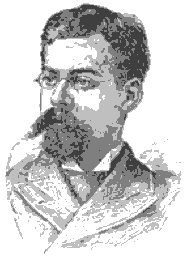| John S. Durham | |
|---|---|
 | |
| United States Minister Resident to Haiti | |
| In office July 30, 1891 – November 7, 1893 | |
| Preceded by | Frederick Douglass |
| Succeeded by | Henry M. Smythe |
| Personal details | |
| Born | (1861-07-18)July 18, 1861 Philadelphia, Pennsylvania |
| Died | October 17, 1919(1919-10-17) (aged 58) London, England |
| Spouse |
Constance Mackenzie (m. 1897) |
| Occupation |
|
| Signature | |
John Stephens Durham (1861–1919) was a teacher, journalist, author, attorney, civil engineer, and diplomat who served as United States Minister Resident to Haiti. He was African-American. He also served in Cuba where he established a law practice and had a sugar plantation.
Family
John S. Durham was born on July 18, 1861, in Philadelphia, Pennsylvania, to Elizabeth Stephens and John Durham, whose brothers helped establish the African Methodist Episcopal Church. Durham's grandfather purportedly took part in Nat Turner's Rebellion. In 1897 Durham married Constance Mackenzie, a white woman who was superintendent of the Philadelphia kindergarten schools, and they had two sons.
Education
Due to his father's early death, Durham worked when he was young while attending the Philadelphia public schools. He graduated from the Institute for Colored Youth on Bainbridge Street and then served as a teacher and principal at various schools in Pennsylvania, Delaware, and New Jersey. Durham then attended and graduated from the University of Pennsylvania in 1886 with a bachelor of science degree. While a student he played football and edited The Daily Pennsylvanian and also wrote for The Times.
After graduation, Durham attended and graduated from a University of Pennsylvania graduate program in civil engineering in 1888 and also attended the University of Pennsylvania Law School in 1887-88 but did not graduate. He worked for the Philadelphia Bulletin for several years after graduation.
Career
In 1891 Republican President Benjamin Harrison appointed Durham to replace Frederick Douglass as United States Minister Resident to Haiti and U.S. Charge d'Affaires to Santo Domingo. He served from July 30, 1891, to November 7, 1893.
After the ambassadorship, Durham studied and passed the bar exam in 1895, and then returned in 1896 to Santo Domingo to manage a sugar plantation for four years. In 1902 President Theodore Roosevelt appointed Durham as assistant U.S. Attorney with the Spanish Treaty Claims Commission in Cuba where he served until 1910. He also maintained a large private law practice in Cuba and owned sugar plantations, leaving a large estate upon his death. Durham authored the novel Diane, Priestess of Haiti (1902) and the monograph To Teach the Negro History: a suggestion (1887).
John Stephens Durham died in London on October 17, 1919.
References
- The National Cyclopaedia of American Biography. Vol. IV. James T. White & Company. 1893. p. 408. Retrieved December 6, 2020 – via Google Books.
- ^ Charles Wynes, "John Stephens Durham, Black Philadelphian: At Home and Abroad" (1982)
- "John Stephens Durham: A Bright Negro from the Philadelphia Times"
- "John Stephens Durham (1861–1919)". Retrieved November 6, 2021.
- Who's who in America, Volume 4, edited by John William Leonard, Albert Nelson Marquis
- "Durham, John Stephens · Notable Kentucky African Americans Database".
- "John S. Durham". Evening Public Ledger. October 20, 1919. p. 14. Retrieved December 6, 2020 – via Newspapers.com.
- Ambassadors of the United States to Haiti
- Ambassadors of the United States to the Dominican Republic
- University of Pennsylvania alumni
- University of Pennsylvania School of Arts and Sciences alumni
- University of Pennsylvania School of Engineering and Applied Science alumni
- University of Pennsylvania Law School alumni
- The Daily Pennsylvanian people
- American engineers
- African-American diplomats
- 19th-century African-American lawyers
- 19th-century American lawyers
- African-American novelists
- Writers from Philadelphia
- Lawyers from Philadelphia
- 19th-century American diplomats
